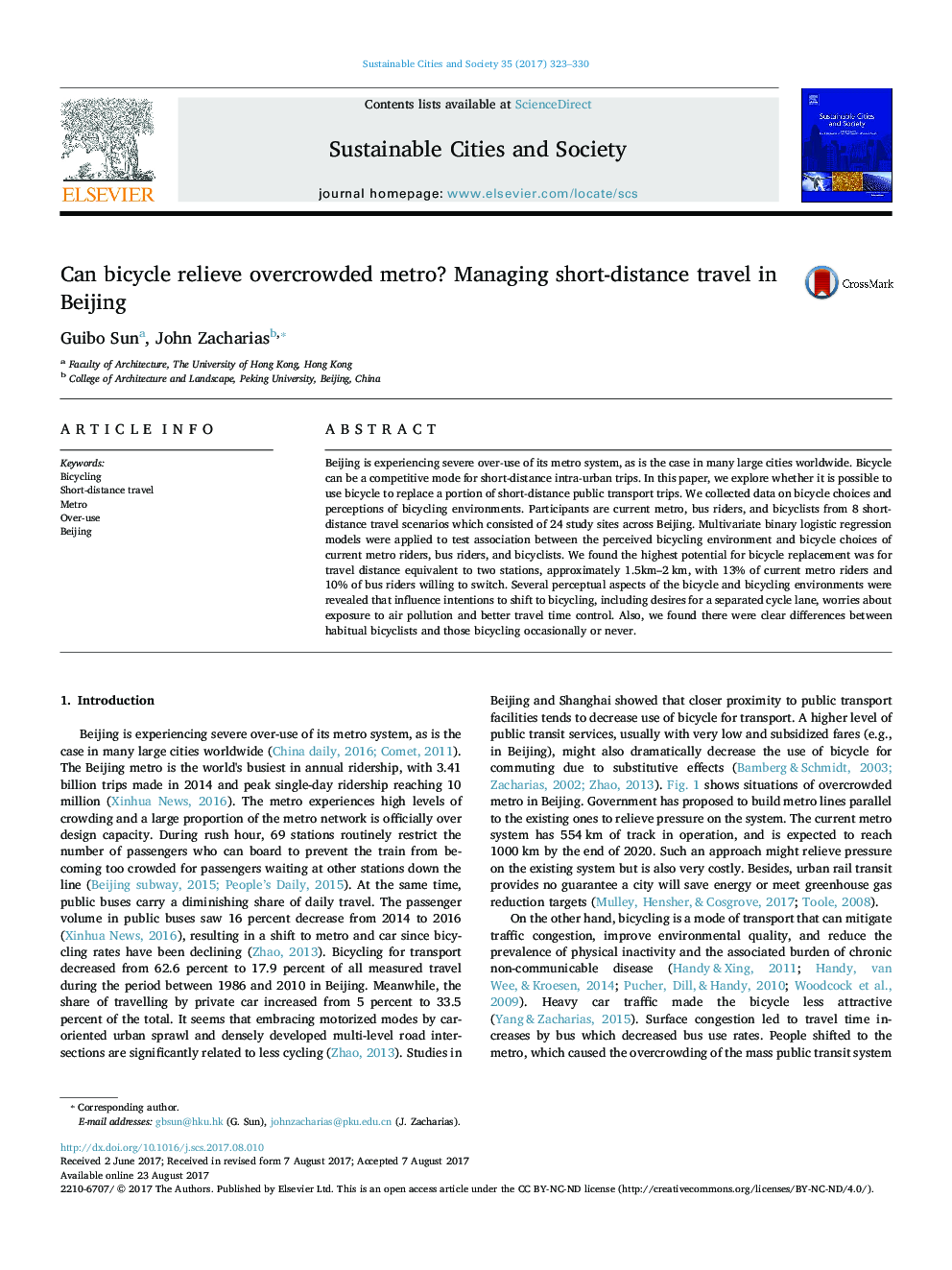| Article ID | Journal | Published Year | Pages | File Type |
|---|---|---|---|---|
| 4928097 | Sustainable Cities and Society | 2017 | 8 Pages |
Abstract
Beijing is experiencing severe over-use of its metro system, as is the case in many large cities worldwide. Bicycle can be a competitive mode for short-distance intra-urban trips. In this paper, we explore whether it is possible to use bicycle to replace a portion of short-distance public transport trips. We collected data on bicycle choices and perceptions of bicycling environments. Participants are current metro, bus riders, and bicyclists from 8 short-distance travel scenarios which consisted of 24 study sites across Beijing. Multivariate binary logistic regression models were applied to test association between the perceived bicycling environment and bicycle choices of current metro riders, bus riders, and bicyclists. We found the highest potential for bicycle replacement was for travel distance equivalent to two stations, approximately 1.5km-2Â km, with 13% of current metro riders and 10% of bus riders willing to switch. Several perceptual aspects of the bicycle and bicycling environments were revealed that influence intentions to shift to bicycling, including desires for a separated cycle lane, worries about exposure to air pollution and better travel time control. Also, we found there were clear differences between habitual bicyclists and those bicycling occasionally or never.
Related Topics
Physical Sciences and Engineering
Energy
Renewable Energy, Sustainability and the Environment
Authors
Guibo Sun, John Zacharias,
